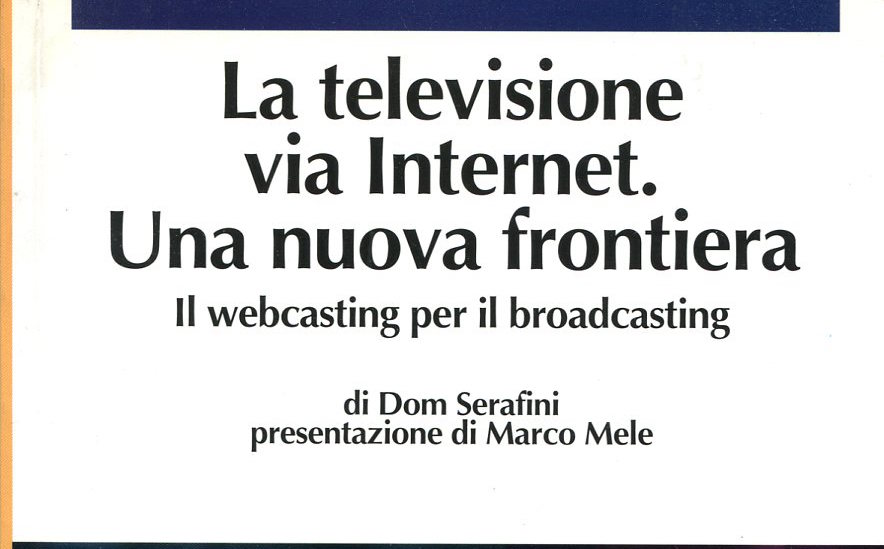In 1999 — some 18 years ago! — when Milan, Italy-based Lupetti Editore published Television via Internet: A New Frontier by VideoAge‘s own Dom Serafini, Netflix was just two years old and only mailed out DVDs to its subscribers.
It took another 10 years for Netflix to discover Internet television — now the mother of all things TV-related. But that’s now the main reason why Disney is buying 20th Century Fox (just the studio, not its TV stations and networks) for a reported $66.1 billion ($52.4 billion in shares and $13.7 billion of Fox’s debts). Fox owns 30 percent of Internet streaming service Hulu, which has 32 million subscribers, along with Disney (which has 30 percent), Warner Bros. (which has 10 percent) and NBCUniversal (which also has 30 percent).
Television via Internet (which offers an introduction from journalist Marco Mele of the Italian financial daily, Il Sole 24 Ore) pointed out “that webcasting [as streaming was commonly called in those days] will also be responsible for the premature disappearance of videotapes and DVDs.” In short, webcasting would eventually replace traditional TV. Elsewhere in the book, there’s this passage: “Webcasting, defined as full motion video and audio transmitted with Internet technology, is around the corner.”
Returning for a moment to the Disney purchase of 20th Century Fox (which is an outright purchase and not a merger), this is seen as a logical move by most, so much so that even Comcast (the parent company of NBCUniversal) was interested in Fox.
In Hollywood, there is widespread fear of the disproportionate growth of Netflix. American studios absolutely want to stop it. In fact, Disney will soon stop selling its TV and film content to Netflix.
Even assuming that Netflix, with its negative cash flow, would change its business model as soon as it reaches maturity (its saturation point), streaming is seen by American studios as the Holy Grail of television. It is also possible that Netflix will one day in the future be acquired by a studio, or vice versa, that it’ll purchase a studio.
Considering the value of Netflix’s shares traded on the stock exchange ($190 each compared to Disney’s $111), the company could easily absorb such a studio purchase before its shares begin to fall, in view of its near “saturation point,” and the strengthened competition with Hulu. The question, in this case, would be whether Netflix would exclusively produce its own programming or would it offer back-end content sales?
Finally, we must remember that with 5.9 percent of the Disney-Fox group, Rupert Murdoch will only be a minority shareholder. Disney’s main shareholders are Apple co-founder Steve Jobs’ widow with 7.7 percent, and five investment funds that collectively own 62.75 percent.












Leave A Comment